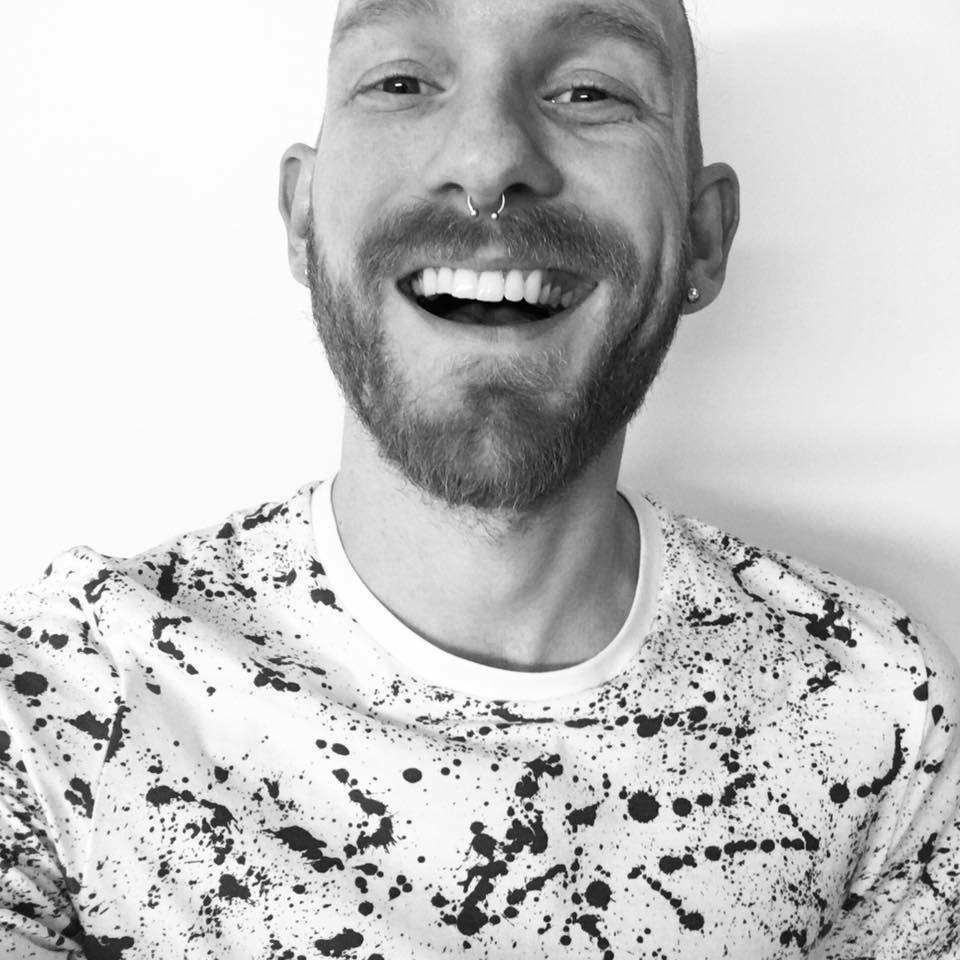Contributor Spotlight: Stephen S. Mills
 Stephen S. Mills’ pieces “The Day Miss Cleo Died” and “On Watching the O.J. Simpson Verdict” appear in Midwestern Gothic‘s Winter 2017 Issue, out now.
Stephen S. Mills’ pieces “The Day Miss Cleo Died” and “On Watching the O.J. Simpson Verdict” appear in Midwestern Gothic‘s Winter 2017 Issue, out now.
What’s your connection to the Midwest, and how has the region influenced your writing?
I was born and raised in Richmond, Indiana and went to college at Hanover College in Southern Indiana, so I spent the first 22 years of my life in the Midwest. When I first started writing, I often avoided my own background and connection to the Midwest. This partly came from my false sense that it wasn’t very interesting or that I needed to be from somewhere more exciting to be an “important” writer. It wasn’t until I left Indiana that I realized its significance for me as a poet. We can leave where we grew up, but someday we have to face it and realize it is what helped shape us. As I’ve gotten older, I’ve often returned to those roots and discovered the richness of the region.
What do you think is the most compelling aspect of the Midwest?
I’m most compelled by the juxtaposition of the open space of the Midwest and the land-lockedness of the Midwest. It works well as a metaphor for the place and my own experience with it. As a gay man growing up in a conservative area, I have a complex relationship with the region that is embodied by that trapped feeling, but also a sense of space and supposed “freedom.”
How do your experiences or memories of specific places—such as where you grew up, or a place you’ve visited that you can’t get out of your head—play a role in your writing?
Because I lived there for my full journey into adulthood, I pull a lot from my experiences and memories of those 22 years. I would say I most frequently return to cornfields. Growing up my grandparents had a farm and my own family had a large garden. I spent many summers helping my grandmother or mother work outside in those spaces. Cornfields are so iconically Midwest, but they very much make me think of family and growing your own food to eat and of the passing of time since cornfields change so much throughout the year from lush green mazes to brown dried stalks. This image never really leaves me.
Discuss your writing process — inspirations, ideal environments, how you deal with writer’s block.
To be honest, I don’t struggle with writer’s block. I typically have the problem of too many ideas and too little time to devote to all of them. I’m very much inspired by my daily life and experiences as well as our connection to history and popular culture. In recent years, my process has very much shifted to looking at work in connection to other pieces. I’m often working on a poetry project or manuscript that ties my work together around a central idea. I’m very interested in the larger picture and writing work that fits together yet can stand on its own. I like the idea of poetry as investigation, which often means I’m drawn to longer work. A lot of my work could fall into what is called documentary poetry. Nearly all my pieces come from a place of research that is then filtered through my own experiences. I also often work from titles. Meaning that I come up with the title first.
How can you tell when a piece of writing is finished?
That is a tough question. I revise heavily, so it can be difficult to call a work “finished.” I typically just have to go with my gut feeling that the piece is ready to see the world. That doesn’t mean I don’t change it later (I often do). Part of my process is also getting feedback from others, so that often helps me decide when a piece feels ready.
Who is your favorite author (fiction writer or poet), and what draws you to their work?
I would say the two writers that have influenced me most are Frank O’Hara and Virginia Woolf (one poet and one fiction writer). O’Hara is perhaps the more obvious influence. I’m drawn to his fascinating combinations of his personal life and the world around him whether that be art or the movies or his friends. Woolf, on the other hand, represents for me my fascination with how our minds work and the question that is often at the root of my work: Can we ever really know another human being?
What’s next for you?
I am currently finishing a new book manuscript, which will hopefully become by third poetry collection. It is titled Not Every Thing Thrown Starts a Revolution.
Where can we find more information about you?
You can visit my website www.stephensmills.com.






